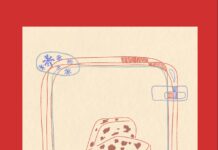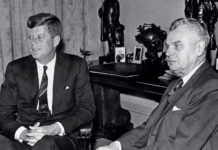On Oct. 24, the faculty of arts and the Office of Advancement kicked off their new speaker series, “Antagonism and Intimidation in Academia,” with an event entitled “Antagonistic Responses Based on Gender and Race in the Academy.” Associate professor of anthropology Seçil Dağtaş moderated the event, which was held at the Quantum-Nano Centre. Panel participants included associate professor of philosophy Carla Fehr, assistant professor of philosophy Laura Mae Lindo, assistant professor of fine arts Logan MacDonald, and associate professor of sociology and legal studies Rashmee Singh.
The event aimed to explore a number of topics related to social justice scholarship, particularly in the wake of June’s hate-motivated stabbing within a UW gender studies class.
Fehr was the first to speak, and described the troubling experiences she’s had as someone who regularly teaches about gender studies and sexual violence within a male dominated field. She underlined the ways that silencing within academic environments can occur without specific acts of intimidation or violence, and that antagonism and intimidation is “much broader than a single person or group.”
Lindo, who spoke next, addressed what she described as “flags” raised by UW community members — expressions of concern which often speak to a sense of danger or presence of something harmful within the university space. Lindo stressed the importance of picking up on these flags, as “no violence just happens out of nowhere.” She explored the question of how institutions can take action with regard to these concerns, and what the role of the university is in considering the idea of free speech. She said that she is “worried that this notion of free speech . . . is actually stopping [institutions] from taking a stand on things,” and that her hope is for “build[ing] universities that take stands . . . that [will say] ‘we’re not actually debating [whether] a person is human.’”
Considerations of free speech have been particularly relevant in the wake of UW president Vivek Goel’s statements on Israel and Gaza, which have been criticized by many students and groups on campus. Such feedback prompted a follow-up statement on Oct. 24 entitled “How our university responds to world events.” In this statement, Goel wrote about the ongoing questions being considered by the university, such as “Is [UW] taking political positions?” and “where is the line between the freedom to speak and the necessity of creating safe spaces on our campuses?”
MacDonald, echoing Lindo’s comments on debates within academia, pointed out that classroom discussions must be monitored by professors so as not to “devolve into personal attacks and insults” rather than debates on material. “Not all ideas are necessarily [allowed] if they’re going to antagonize others,” he added.
Singh, the final speaker, detailed the criticism instructors often receive when teaching classes about gender studies or critical race theory. She described how professors “have been accused of indoctrinating students with left-wing ideology” when teaching these topics, and that it is important to “challenge and counter these mythologies.” One conception countered during her talk concerned the idea that systemic racism is something “ideological,” rather than being a topic of study which is “rooted in evidence.”
Singh further explored the idea of “indoctrination” with regard to her own teaching, and explained that throughout her career as an instructor she has “yet to find evidence” of such indoctrination upon her students, who she says have almost always retained the same political stance that they held at the beginning of the course.
The speaker series, which will run from fall 2023 to winter 2023, will conclude with an international conference hosted by UW. For more information, click here.





























